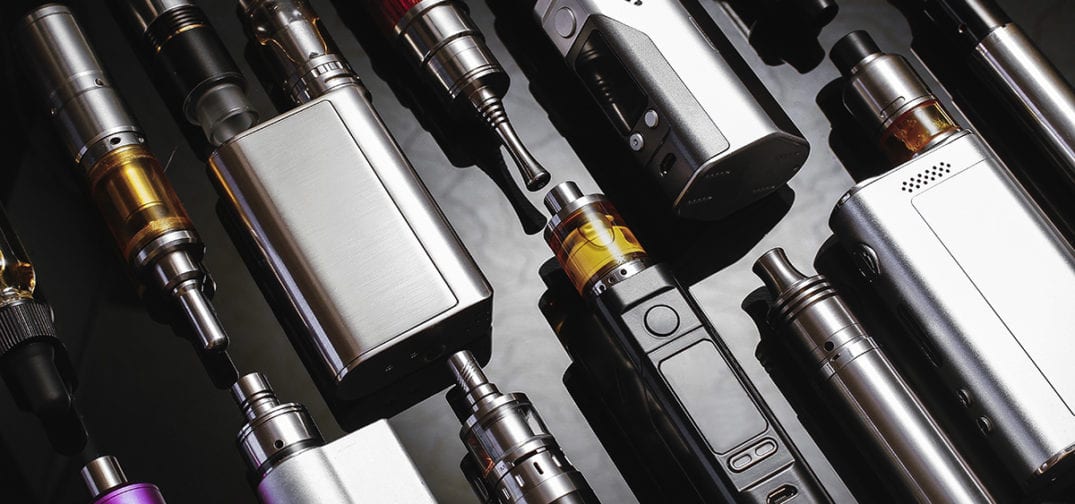A study published last month in the Journal of the American Heart Association suggests that the vape-associated lung injury (EVALI) condition could be produced by vape products that contain neither THC nor vitamin E acetate, pointing instead to the metals used in the products.
In rodent studies, the researchers “observed an e‐cigarette or vaping product use–associated lung injury‐like condition that occurred acutely after use of a nichrome heating element at high power, without the use of tetrahydrocannabinol, vitamin E, or nicotine.”
The study notes that the Centers for Disease Control and Prevention reported 82 percent of EVALI cases included THC use and another 57 percent of cases reported e-cigarette nicotine use.
The researchers said that while their studies are ongoing, e-cigarette users “should be cautioned about the potential danger of operating units at higher than recommended settings and be aware that adverse effects can occur without THC, vitamin E, or nicotine.” They added that the published study was limited since they did not include unflavored vape products and that “vaporization of propylene glycol/vegetable glycerin at a higher temperature may also have contributed,” but was not measured in the study.
“…However, the fact that the e‐liquid and flavoring was the same for both heating elements, but the EVALI‐like syndrome only occurred in the [nickel-chromium alloy] group, makes it unlikely that the tobacco flavoring used in the [e-cigarette] was the sole culprit.” – “E‐cigarette or Vaping Product Use–Associated Lung Injury Produced in an Animal Model From Electronic Cigarette Vapor Exposure Without Tetrahydrocannabinol or Vitamin E Oil,” Sept. 8, 2020, JAHA
The researchers caution that e-cigarette users “should be cautioned about the potential danger of operating electronic cigarette units at high settings; the possibility that certain heating elements may be deleterious; and that E‐cigarette or vaping product use–associated lung injury may not be dependent upon tetrahydrocannabinol, vitamin E, or nicotine.”
Get daily cannabis business news updates. Subscribe
End
